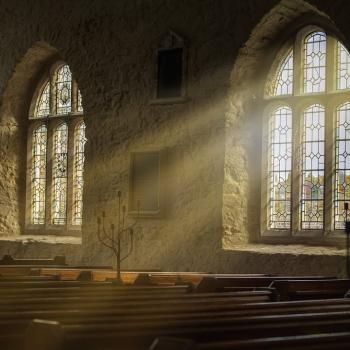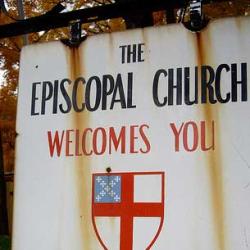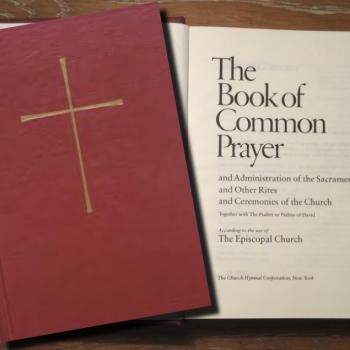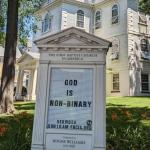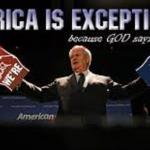
As the priests in a local parish, my wife and I make it a point to read widely about the efforts that clergy make to build strong parishes. If others have wisdom to share, it doesn’t make sense to slam the door on discoveries that others are making, never mind ignore what the Holy Spirit is doing elsewhere in the church.
To be sure, we don’t believe that those methods can be appropriated wholesale; and the church should always consider the imbedded theological assumptions that drive any activity. The church possesses a theological inheritance that should not be sold for the proverbial bowl of lentil soup. (Ge 25:29-34)
But, unlike some clergy in mainline denominations, we also don’t think it is unwise to look down our collective noses at what other churches do. So, among those practices are those employed by non-denom pastors. Although there are those who note that they are facing their own challenges, non-denoms have been effective in planting and growing congregations. And, in growing those congregations, there is much that they do well:
- They speak to people who long to embrace a faith that makes demands of them personally.
- They take seriously the importance of speaking to where people where they are.
- They address the challenges that individuals and families face in living out their faith.
- They avoid the classism that keeps some clergy from speaking in a relevant fashion to people across socio-economic differences.
- They cultivate lay leadership that is forthright in embracing their churches’ mission.
- They think strategically about planting and growing congregations.
- They make effective use of social media.
- And they don’t despise growth.
That said, non-denoms also prioritize goals and values that would never be compatible with our corner of the church:
- Our church (The Episcopal Church) and other liturgical churches like ours cannot abandon our liturgy or our commitment to a regular celebration of the Eucharist. For us to do that would sacrifice the generative center of our shared life. It would mean abandoning our understanding of the Christian journey and the Eucharist’s place in that journey. And, candidly, without that practice, there is relatively little rationale for the on-going practice of our tradition.
- For that reason, we cannot place the priority that non-denoms place on lowering the threshold between the experience people have of daily life in America and their experience of worship in the church. We can and should make it as easy as possible to follow the liturgy. We should explain what we are doing and why we do it. And, while the liturgy says something about the message that worship imparts concerning the presence of God and our place in God’s economy, we should avoid using the liturgy as a means of creating an “in group” that uses the liturgy as a way of excluding the “uninitiated”.
- So, we will never be able to rely on the combination of a “rock concert and a Ted Talk” as a means of structuring our worship. But we can (and in our parish we do) use a bulletin that draws out the liturgy in detail and includes marginal notes that briefly explain why we do what we do.
- We will also never be able to draw a hardline relegating pastoral care to the laity, which non-denoms often do, labeling pastoral care as an obstacle to growing churches. In churches that have enough clergy, it may be that one clergyperson may shoulder more responsibility for pastoral care than others. And we encourage the development of lay-driven community and care that addresses some of those needs. But there will be sacramental needs, as well as a level of vocational preparation, that will always be needed in underwriting our efforts.
- This means, too, that while our churches often neglect reaching out to new generations of Christians, we will also never be as uniformly young as some non-denoms, and that is ok. Indeed, it conforms strongly to a sacramental way of life that embraces our journeys from the cradle to the grave.
In sum, then, the practices of non-denom leaders has to be evaluated through a lens that is particular to our own history and theology as a church. But we can learn much from both the attention to growth and some measure of the practice in non-denom circles.
Hopefully, our seminaries, churches, and clergy will begin paying greater attention to the issue of growth. We need to shed the classism and ecclesial snobbery that has slowed our response to that part of our calling. We need to quit using organizational euphemisms that cloak our failure in metaphors that dismiss our decline as “molting” or as “a new way of doing church”. And our seminaries need to resist the insular and clubby culture that kept us from challenging our clergy to think through the challenge that Jesus gave the first apostles to declare the Gospel and baptize those who respond.
Photo by NATHAN MULLET on Unsplash



